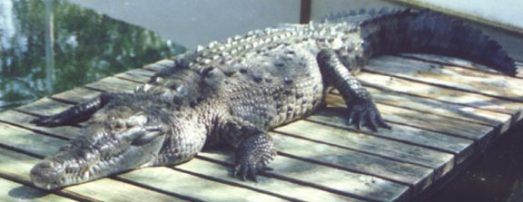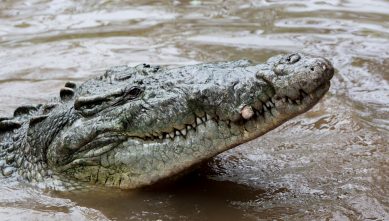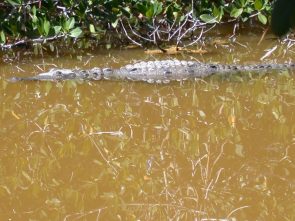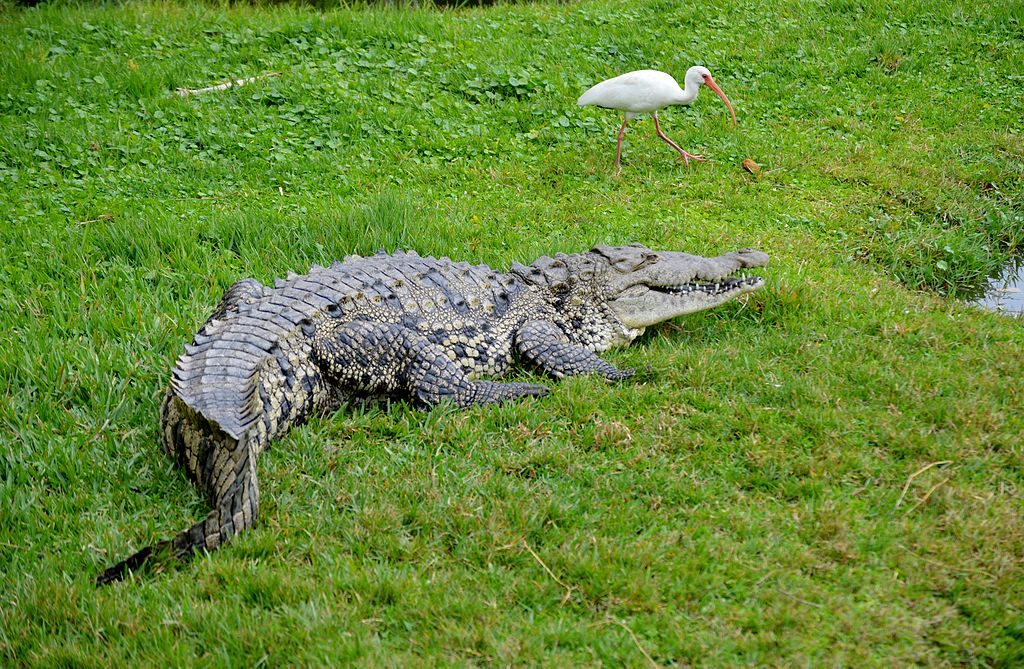American crocodiles are most prevalent throughout Central and South America; however, small populations reside in the very southernmost area of Florida. The crocodiles you will find in the Florida Keys play a role in the delicate Everglades ecosystem, preying on reptiles, fish, birds and small mammals. While the crocodile population in the Florida Keys may be small in numbers, these unique creatures have captivated the interest of researchers and civilians alike.

Here are 10 facts about the American crocodile that you may not have known:
- One of the differentiating factors between crocodiles and alligators is the shape of their snout. Crocodiles have a narrower, more V-shaped snout than alligators and have lighter skin shades.
- Unlike Alligators or the Nile and Australian crocodiles, American crocodiles are very shy, reclusive, and are rarely seen by people.
- Different from other animals where sex is determined at fertilization, crocodile sex is a based on the temperature on which the eggs are incubated. Above 88 degrees are mostly males and below 88 degrees are mostly female. Nesting temperatures must be above 82 degrees to survive and hatch.
- The crocodile is very temperature sensitive and therefore lives almost exclusively in the southernmost tip of Florida. However, some have been reported as far north as Tampa Bay.
- American Crocodiles are apex predators, meaning they’re at the top of the food chain. Their only known predator is the American Alligator which have been seen killing and eating crocodiles.
- Crocodiles can survive months without food due to their extremely slow digestion.
- The average adult male crocodile reaches about 14ft. Females range from 8 to 12 feet in length. Average age is 50-70 years.
- In South Florida, 68% of crocodile deaths are attributed to road collisions. You will often see crocodile crossing signs as you drive south through the Everglades and into the Keys for this reason.
- When relocation is necessary due to close proximity to humans and housing, magnets are used in transportation disorient and distort their keen sense of direction; otherwise, they almost always return back to the same spot.
- American Crocodiles are known predators of Lemon Sharks. These sharks avoid any waters inhabited by crocodiles.

Photo by Thomas Castelazo, www.thomascastelazo.com
Although these fascinating animals are no longer considered endangered, they are still a threatened species and strict rules regarding their treatment and removal must be observed. Humans that live in an area where crocodiles are present should always be mindful of their pets, as dogs are more likely to be attacked due to their resemblance to the crocodiles’ natural prey. Of course, crocodiles should be observed from afar and never fed, baited or antagonized.

Photo by Clay Degayner
Homepage and feature photos by Agsftw


